Solis Seminar, Episode 49: Influence of Azimuth and Tilt on Yield of PV System
15:45 | 29/11/2022
About Azimuth and Tilt
Azimuth: Is the angle between the vertical plane of the PV panel and the south direction (90°in the east and -90°in the west).
Tilt: This is the angle between the plane of the PV panel and the horizontal ground, and it is hoped that this angle is the optimal inclination angle of the phalanx when the power generation is the largest in a year. The optimal tilt angle is related to the local geographic latitude. When the latitude is higher, the corresponding tilt angle is also larger.
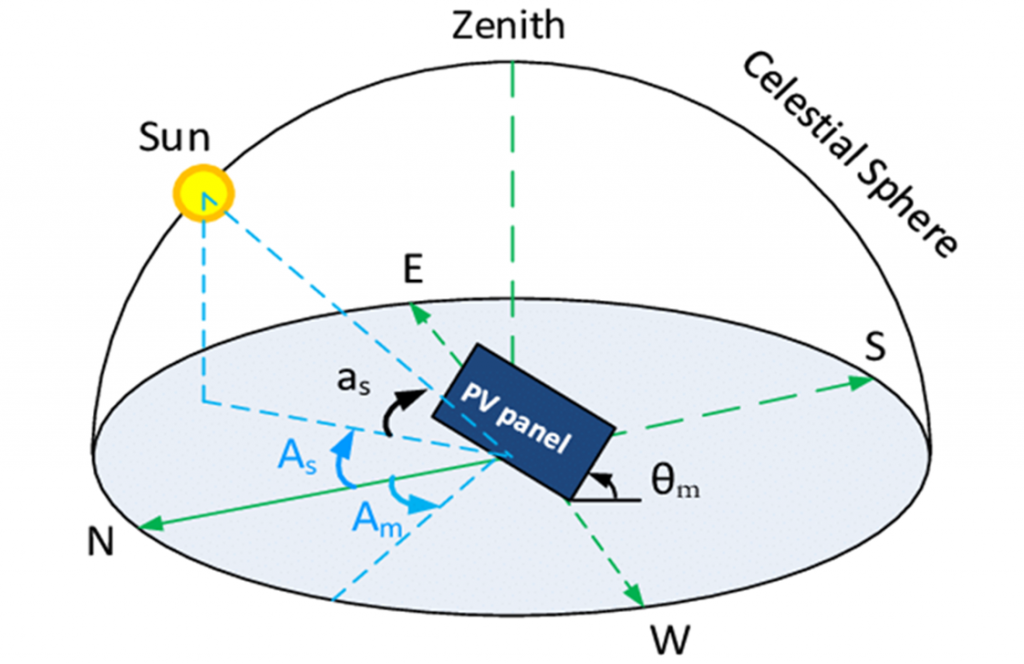 |
| Figure 1:Azimuth and tilt |
The figure below shows the influence of azimuth and tilt on the power generation of a system in an area 30°north latitude.
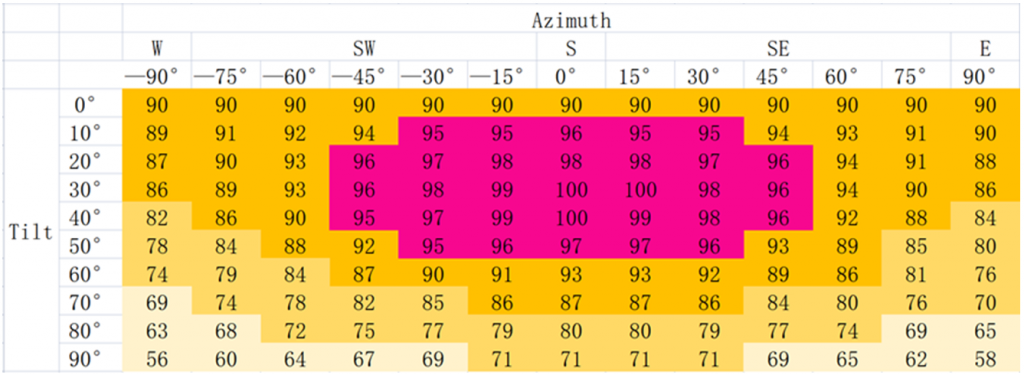 |
| Figure 2: Impact of azimuth and tilt on system power generation |
Influence of PV panel installation azimuth or tilt on power generation
In a solar PV system, the azimuth or tilt on the PV panel can have a great influence on the power generation of the system. Take the area of 39°north latitude as an example. Through a PVsyst simulation, it is found that the best tilt is about 39°, the best azimuth is 0°.
See below which shows the impact of changes:
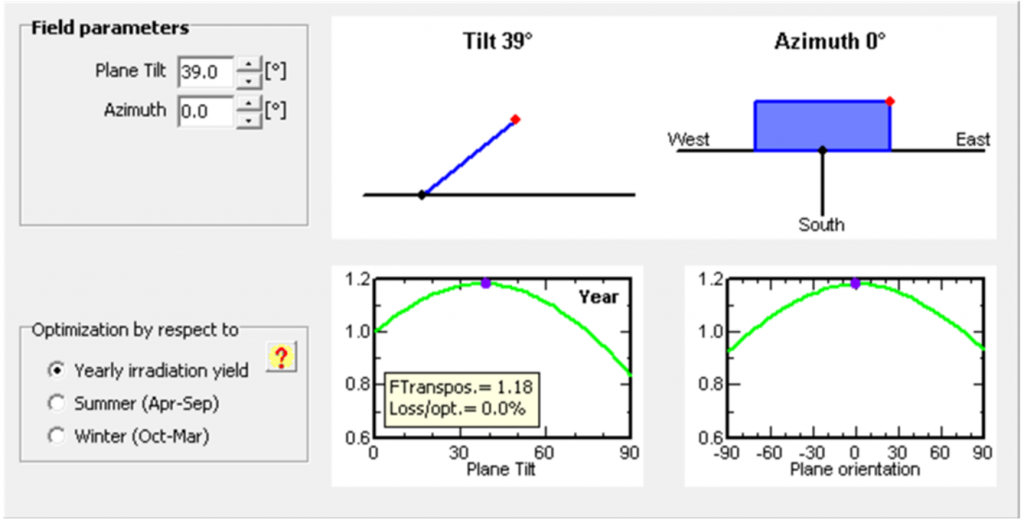 |
| Figure 3: PVsyst simulates the effect of azimuth and tilt on power generation losses |
The impact of Azimuth changes on the yield of PV systems
If the installation direction of the PV panel is not due south but has a certain angle with due south (changes from -90°~90°; east is 90°, west is -90°), the relative loss of power generation changes will be as shown in the figure shown.
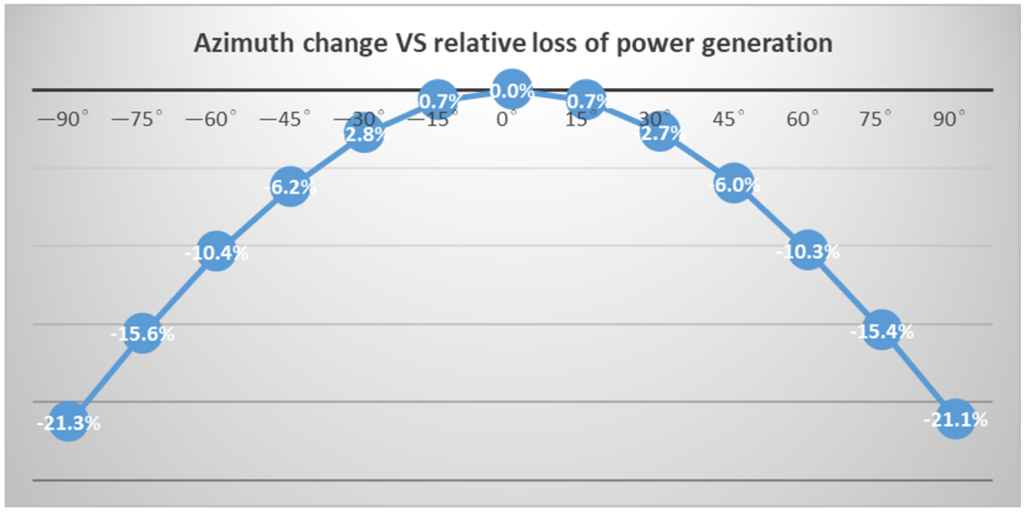 |
| Figure 4: azimuth VS PV system power generation relative losses |
It can be seen from Figure 4 that when the azimuth changes from -90 ° to 90 °, the power generation change has the following characteristics:
-
1) The azimuth changes eastward and westward, and the impact on the power generation is the same; if it is installed facing east or west, the relative loss of power generation changes similarly.
-
The relative loss of power generation changes as a parabola, that is, when the azimuth gradually increases from 0°to the east or west, the loss of power generation changes significantly
-
The angle between azimuth and due south varies within ±15°, and the relative loss of power generation is within 1%.
The impact of Tilt changes on power generation
In any area, PV panel installation has an optimal tilt, which is related to the latitude of the installation site, as shown in Figure 5. When the PV panel installation tilt changes, the power generation changes accordingly. The PV panel tile tilt is 0; when the PV panel is installed vertically on the ground, the tilt is 90°, and the corresponding changes are as follows.
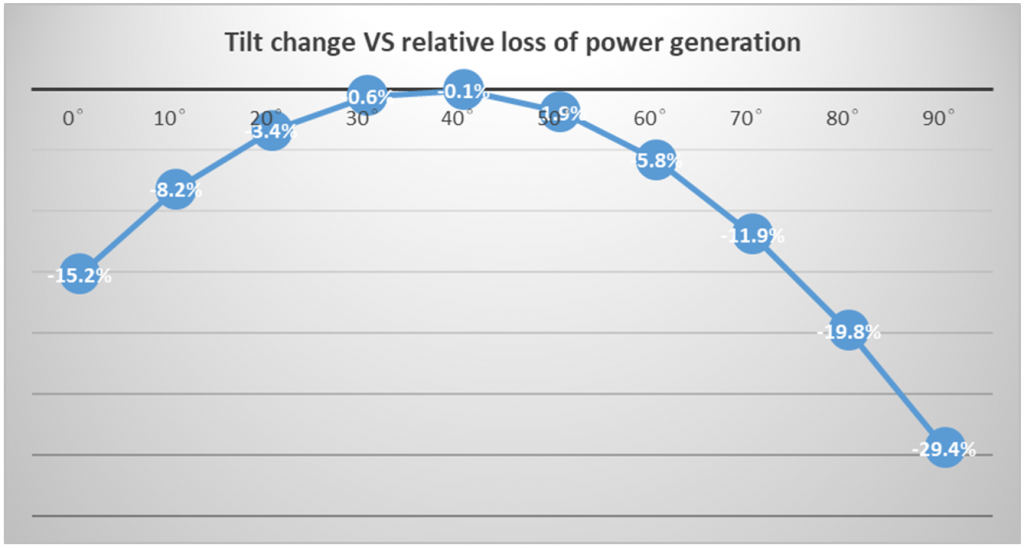 |
| Figure 5: tilt VS relative loss of power generation |
It can be seen from Figure 5 that when the installed tilt of the PV panel deviates from the optimal tilt, the relative loss of power generation changes, and the variation range increases with the increase of the deviation between the actual tilt and the optimal tilt.
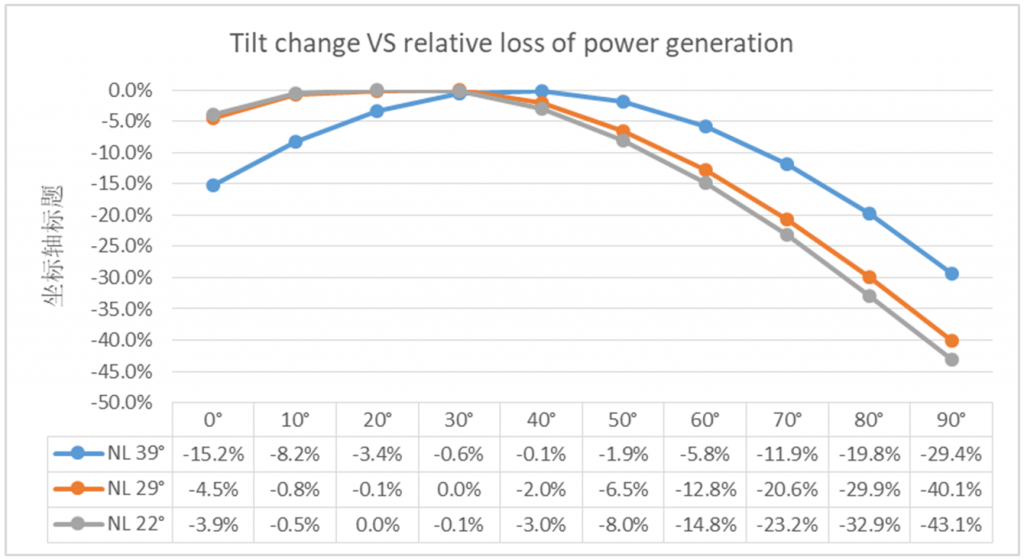 |
| Figure 6: Relative loss of PV panel tilt VS power generation at different latitudes |
Table 1: Variation table of relative loss of optimal tilt±5° power generation of PV panel at different latitudes
| NL 39°
| 34°
| 39°
| 44°
|
| -0.12%
| 0.00%
| -0.49%
| |
| NL 29°
| 24°
| 29°
| 34°
|
| -0.15%
| 0.00%
| -0.31%
| |
| NL 22°
| 17°
| 22°
| 27°
|
| -0.14%
| 0.00%
| -0.36%
|
In addition, as shown in Figure 6 and Table 1, the curve changes are slightly different at different latitudes, but the overall trend is as follows:
1) In low-latitude areas, the less power loss is when tiling, and the greater the power loss is when vertically installed.
2) Its value changes are parabolic. And the greater the difference between the actual tilt and the optimal tilt, the greater the relative loss of power generation.
3) The tilt changes at the optimum tilt ±5°, which has little effect on the power generation, and the difference of the radiation amount is within 5‰.
Summary
The power generation of a solar PV system has a lot to do with the azimuth and tilt of the PV panel. Generally speaking, the power generation of the system is the highest under the conditions of the south azimuth and the best tilt. Therefore, attention must be paid when the system is installed and designed. Of course, other factors need to be considered, such as snow cover, terrain conditions and land area restrictions. It is necessary to choose between the azimuth and tilt of the PV panel to ensure the best system performance.

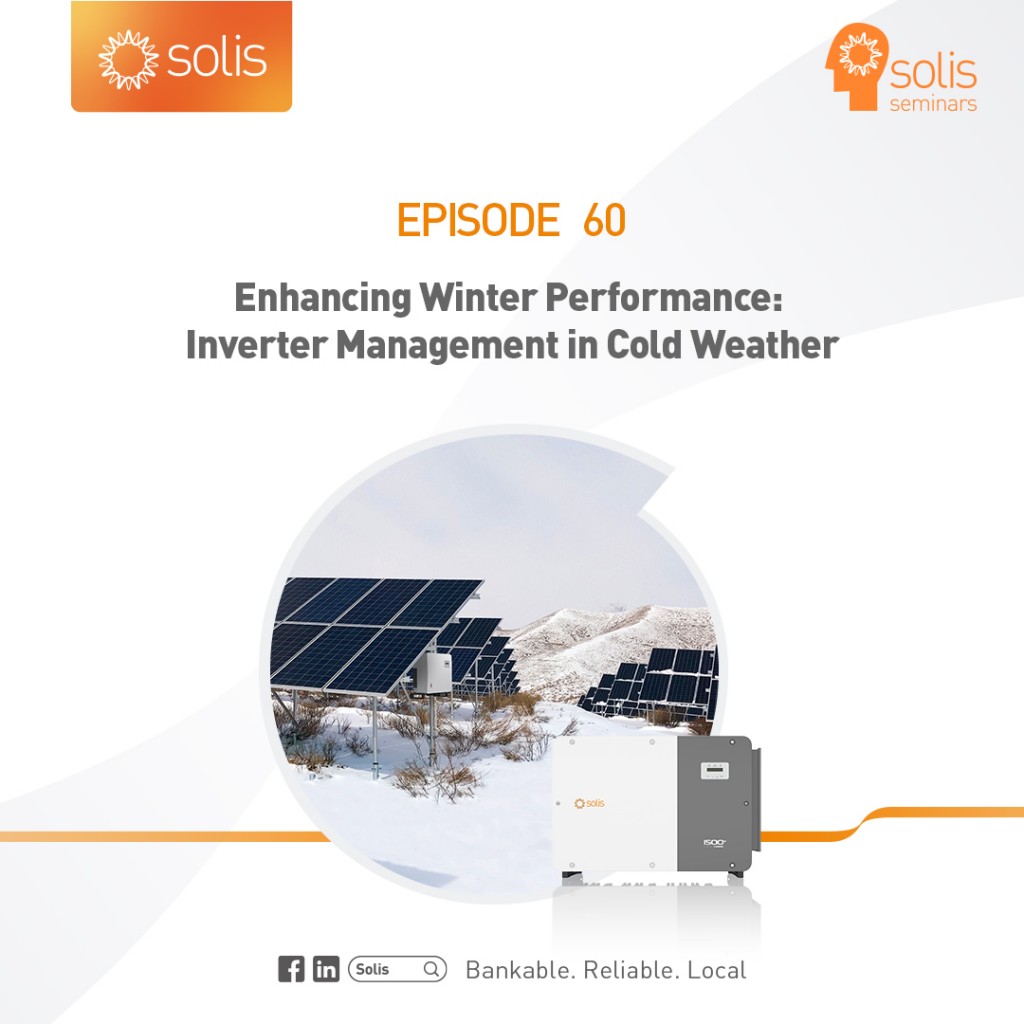
![Solis Seminar [Episode 56]: Online O&M dispersion analysis](https://vietnamenergy.vn/stores/news_dataimages/Lemy/092023/07/11/0940_Solis_1.jpg?rt=20230907111046?230907111707)
![Solis Seminar [Episode 55]: Using the piecewise method to check the PV string ground point](https://vietnamenergy.vn/stores/news_dataimages/Lemy/072023/24/10/1349_24.6.jpg?rt=20230724101530?230724103035)




